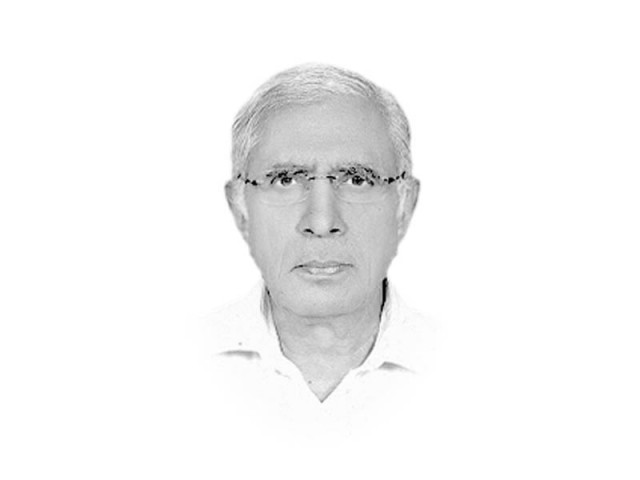Five in one
Pakistan is five countries in one and each of these parts is trying forcibly to get the better of the other four.

The unanticipated but unavoidable carry-over imprint of the Two-Nation theory on the emerging one-Pakistani nation, the compulsions in the early days to set Pakistan apart from India and the notion that Islam has the powers to unify the nation irrespective of differences within on ethnic, sectarian, cultural and economic lines all had caused the founding fathers to sidestep the challenges of nation-building and leave it to the Objectives Resolution (OR) passed by the Constituent Assembly in 1949 to take care of all the diverse challenges that confront a newly independent country. They had such unflinching faith in the unifying powers of the Ummah.
But the validity of the OR in the nation-building process was challenged within five years of its passage in the Report of the Court of Inquiry constituted under the Punjab Act II of 1954, to enquire into the Punjab Disturbances of 1953. Also called the Munir Report, it had concluded that the concept of a Muslim differed for different sects and if the fatwas of the ulema were relied upon to determine whether an individual is Muslim or Kafir, then no sect could be called Muslim because of the lack of a single, coherent and unanimous definition of a Muslim and an Islamic State.
The majority of Pakistanis belongs to the Sunni school of thought. Those who subscribe to the Shia school of thought are also in good numbers. Among the Sunnis, many are Barelvis and perhaps, as many are Deobandis now. Also, there are some who follow the Whabi/Salafi Islamic school of thought. And many are disciples of Sufi school of thought. In democratic pluralism, such differences in the interpretation of religion would be settled through the ballot box. Instead, these groups have lately started trying to shoot their way out to the victory stand, thanks largely to four extended periods of military rule.
Midway through the 1970s, we saw Iran and Saudi Arabia fight their proxy war in the streets of Pakistan. Middle East arms and funds are still pouring into the country with our security agencies looking on helplessly. The US-led jihad against the occupying Soviet troops in Afghanistan in the 1980s injected yet another divisive trend into Pakistan’s polity. And the 9/11 related UN-sanctioned war on terror has compounded the situation further, adding one more layer to the ongoing polarisation.
A full-blown insurgency is going on in Balochistan. The Pakistan-Afghanistan border regions, where the writ of the government was already loose by arrangement, are now being attempted to be swallowed by force by the so-called non-state actors. In urban Sindh, Islamabad’s writ exists only at the pleasure of numerous warring gangs engaged in the battle for Karachi. In rural Sindh, the feudal aristocracy rules the roost. And in Punjab, as many as 40 armed-to-the-teeth Lashkars exist — some of them specialise in sectarian killings and some are battle-ready all the time to bleed India in Indian-held Kashmir. Indeed, there is no country in the world, Muslim or non-Muslim, where Muslims kill Muslims in such a large number on a daily basis as they do in Pakistan in the name of Islam.
The strong-arm tactics being used by various political, ethnic and religious factions to impose their respective ideologies on the nation to the exclusion of all other ideologies are likely to polarise society further. Such societies wither away quickly. In fact, those who want to take over the country at gunpoint would have no country left to take over if they continue to kill. On the other hand, societies that allow room for various factions to accommodate one another’s viewpoints and practise democratic pluralism acquire a robust kind of vitality necessary for boosting the nation-building process.
Published in The Express Tribune, November 28th, 2012.














COMMENTS
Comments are moderated and generally will be posted if they are on-topic and not abusive.
For more information, please see our Comments FAQ